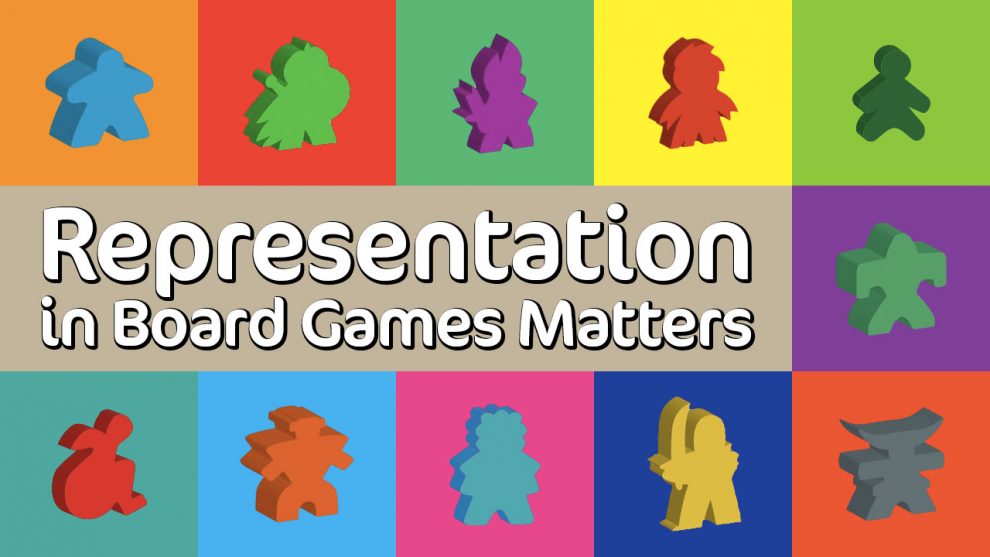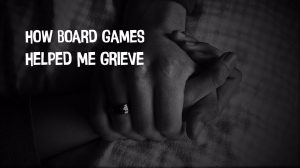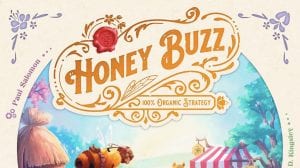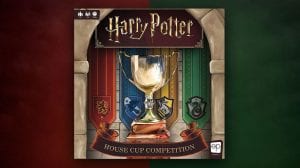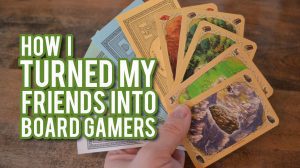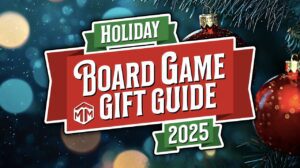Representation matters for all marginalized groups, but today I’m going to talk about something that creates little challenges that I have to face every day: I am a woman. It’s 2020; this shouldn’t matter. But somehow it still does.
Before we get into that, I’d like to acknowledge my many privileges: I am a white, upper middle class, heterosexual, cisgender, educated, Canadian. That’s a lot of privilege and something I’m thankful for. And even with all of this privilege, I’m still not on equal footing.
I’m a woman who works in STEM and obtained a bachelor’s degree in engineering. I’m used to not being represented in my area of expertise. What I didn’t expect was for this to be an issue in my hobby. I love board games. I love them a lot. The types of games I especially seem to love are the ones that have old white men on the cover.

If you’re reading this and thinking, “it’s not that big of a deal”, you’re both right and wrong. Yes, it’s not overt sexism, but it reinforces an implicit bias that negatively impacts women. There are so many “little things”, also known as microaggressions, that women have to just accept on a daily basis, so I don’t think it’s too much to ask for a little representation in our hobby. Here are a few things that may seem small, but add up to a system that, intentionally or otherwise, excludes women.
Far more men are depicted on board game covers than women
If I look through my own collection of games and specifically count the ones depicting humanoids that clearly present as male or female on the cover, there are 51. Of those 51, only 28 show female-presenting characters, and of those games only 18 female-presenting characters are in the foreground. That’s barely more than a third.
Here are some other numbers for you. Of those 51, only 3 don’t show characters presenting as male, meaning there are 48 that depict men but only 28 that depict women. If you’re having trouble visualizing that, here’s a handy little pie chart.
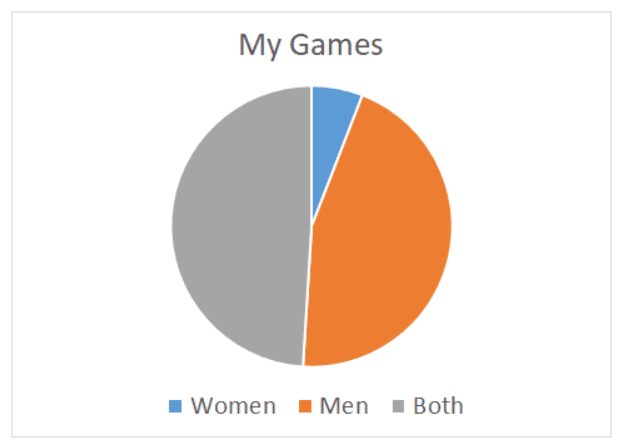
Of course, that’s just my collection. Let’s take a look at the BGG Top 100. At the time of me writing this (March 2020), there are 67 games that depict humanoids presenting as either male or female. Of those, characters presenting as female are in 37. This means 29 of these 67 games don’t depict women at all. Compare this to the 3 games that don’t depict men. Here’s another pie chart. It’s even less equal than my chart above.
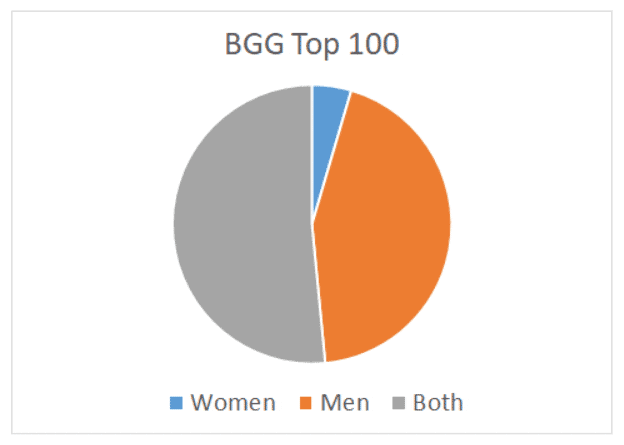
In the very few cases where the scenario is flipped and no men are represented in the game, there is public outcry. In 2018, Tonya Pobuda, PhD candidate, summarized some reviews of One Deck Dungeon, a game that only features female characters. And because I can’t say it better, here’s an excerpt:
A small collection of 1-star Amazon.com reviews cropped up around the game’s release. One reviewer called the game “One sex dungeon” and another called it simply, “sexist.” Reviewer Zach C on Amazon.com complained, “…only women characters. I guess they don’t want me… Misandry noted. If they make a version for me, or for both sexes, I may buy that.” (1)
I guarantee you that if it had been a game with only male characters, no one would bother to call it “One Sex Dungeon”. We are so used to men dominating board game art that we are surprised when it’s not the case.
Something that I’d like to note is that in order to write this, I did make assumptions about gender based on appearance. I tried to use inclusionary language to make this clear, but just in case: please don’t assume someone’s gender based on appearance.
Most board games are designed by men
If we look at the BGG Top 100 again, we have 94 games designed solely by men, 3 games with male and female designers, and 2 games designed by only women (1 game, Go, does not have a designer to credit). This isn’t because women don’t like board games or because we aren’t clever enough to think up intriguing games. When an industry is dominated by men, breaking into it as a woman can be nearly impossible due to discriminatory presumptions and preexisting loyalties to prominent male designers.
Since there are so few, there is a lot of pressure on female designers. They aren’t just designers; they represent women and their abilities. If a man fails at designing a game, no one will say it’s because he’s a man. Unfortunately, that’s not the case for women and we can’t all be Elizabeth Hargrave.
Most popular game reviewers are men
Dice Tower (Tom Vasel), Rahdo Runs Through (Richard Ham), Shut Up and Sit Down (Quintin “Quinns” Smith, Matt Lees, and Tom Brewster), and the now defunct but hugely popular Wil Wheaton’s Tabletop. These are the big board game names on YouTube, and they all have one thing in common… You guessed it, they’re all men.
But men aren’t the only people who review games. As you might have realized, I’m a woman and a board game reviewer, and I have a few teammates here at Meeple Mountain who identify as women as well! We mainly do written content, so if you prefer YouTube here’s a list of non-male video content creators you should check out:
- Annette Villa (Nettersplays)
- Becca Scott (Good Time Society)
- Brittanie Boe (Be Bold Games)
- Crystal Pisano & Ambie Valdés (Board Game Blitz)
- Ella Loves Board Games
- Liz Davidson (Beyond Solitaire)
- Mandi Hutchinson and Suzanne Sheldon (Salt and Sass Games)
- Paula Deming
- T. Caires
- Teri Litorco
- The Players on Girls’ Game Shelf (The Players include Christina “Kiki” Aimerito, Beneeta Kaur, Fertessa Scott, Melissa W. Bailey, AnnaMaria Jackson-Phelps, Theresa “Terry” Castillo, Savannah, Michelle Ridge, Paula, Kaitlin, Iselle, Estela Garcia, Monique, and Kailey Bray)
Exclusionary language in rulebooks
Here’s another thing that you may think is minor, but adds up and becomes exhausting. So many rulebooks give examples saying “he does this, he does that”. Sometimes rulebooks will say “she”, which is great, but I don’t see the need to gender players at all. Why use exclusionary language when there is an inclusive option. If you ask any linguist, they’ll probably tell you there’s one very easy way to do it. Hint: I just used it in the last sentence.
In a discussion on representation in board games on reddit, user plasmatorture commented on rulebooks that stray from the norm and use female pronouns in their descriptions:
It’s always amazing to me how uncomfortable reading rulebooks that do that makes me. It just don’t feel natural at all and that’s pretty sad and depressing – I wish I wasn’t culturally trained to expect my gender’s pronoun as the default.
Once upon a time male pronouns were the default. But there was also a time where women couldn’t vote. Just because something was done a certain way in the past doesn’t mean it’s right for the present.
What Now?
I’ve told you the problem, so what’s the solution? Well, I’m not an expert but there are some important things you can do. Yes, you!
- Start by changing your language. If you’re teaching a game or just talking about one, don’t assign genders when you don’t need to. Why would you want to alienate a group of people just for your own ease?
- Give lesser known games by female and non-binary designers a chance. Even better: be intentional, and seek them out. When you find a game you like by one of these designers, buy it, talk about it, review it. Signal boost that women can design games too.
- Consume content made by women, whether it’s reviews, discussions, or playthroughs. Women play games too and we have a lot of insightful opinions about them.
Before we finish, I want to end similarly to where I began. This article is focusing only on the lack of representation of women in the world of board games. I haven’t even gotten into other minorities or marginalized groups; that’s far more than can fit into one article. Suffice it to say, the board game industry has a lot of work to do when it comes to representation.
1Tonya Pobuda, 2018. Assessing Gender and Racial Representation in the Board Game Industry. Analog Game Studies. http://analoggamestudies.org/2018/12/assessing-gender-and-racial-representation-in-top-rated-boardgamegeek-games/


